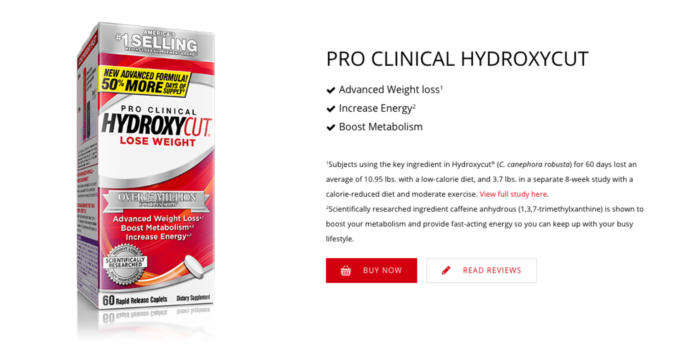
Despite several safety recalls of this brand of dietary weight-loss supplements over the past decade, “Hydroxycut” still continues to sell. Consumers continue to buy it despite its main ingredients and supposed related efficacy changing all the time.
This product is in our face everywhere we go. Whether it is the local supplement store or even multinational supermarket chain, this company has succeeded with master craft marketing ever since its development.
Earlier formulations contained ephedra, a plant-based stimulant with serious side-effects, including heart problems and stroke. In the US, the Food and Drug Administration banned it in 2004.
Revised formulas then continued to cause safety concerns due to a number of published case reports of serious health problems mainly relating to the liver and kidneys. Consequently, the product was again recalled in the US in 2009.
It hit the shelves again in 2010 and today the product contains an extract from species of coffee, the key ingredient being C. canephora robusta (green coffee extract). Coffee beans are green until roasted. In their green form they contain a high content of chlorogenic acid, which has the supposed weight-loss mechanistic action of reducing glucose absorption into the intestines.
Does it work?
Only a small number of human clinical trials have examined the efficacy of green coffee bean extract on weight loss. No trial has specifically looked at the “Hydroxycut” product range. The greatest efficacy of green coffee extract was seen in a 2012 study, but this publication was retracted due to serious methodological flaws.
A meta-analysis, which looked at the only three high-quality study designs that compared the effects of green coffee extract with a placebo, did report a mean weight loss of approximately 2.5 kilograms for those taking the active dose compared to the placebo.
However, this review included only 142 participants for the three studies combined. There was significant diversity among the study participants and the longest studies were only of 12 weeks’ duration. Of greatest concern is that one of the studies is unpublished.
The main study promoted on the “Hydroxycut” product website (published in a French journal and translated in English) is one of the three studies that was included in the meta-analysis. But, like the other studies, it does have some methodological queries surrounding not only the randomisation process but also the statistical analyses of the results.

Is it safe?
Two of the three studies included in the review did not report on the safety of green coffee extract and therefore its safety is not well established.
Of concern is that case studies continue to be published on Hydroxycut and liver and kidney complications (despite the reformulation of Hydroxycut in 2010), therefore seriously questioning its safety.
If we are to spend our disposable income on weight-loss products, it is imperative we do so on those with an established benefit and proven safety. In light of the limited available research, it is improbable the “Hydroxycut” weight-loss product range provides any efficacy beyond a reduced-calorie diet.
Larger studies of longer-term duration are needed, and specifically exploring the specific Hydroxycut products themselves.
A research program is being run at the University of Sydney to explore the efficacy of such over-the-counter weight-loss products. Please visit our website for more information or to participate.
Dr Nicholas Fuller has received research grants for other clinical trials funded by Australian Egg Corporation, Weight Watchers International, SOHO Flordis International, Arnotts Biscuits, Sanofi-Aventis, Novo Nordisk, Allergan, Roche products, MSD, and GlaxoSmithKline.
